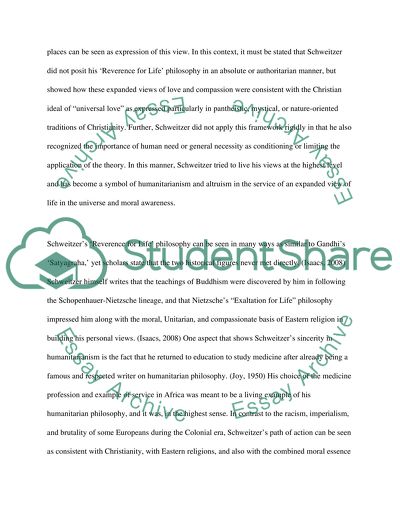Cite this document
(“Schweitzer and his Reverence for Life Philosophy Research Paper”, n.d.)
Retrieved from https://studentshare.org/family-consumer-science/1420030-schweitzer-and-his-reverence-for-life-philosophy
Retrieved from https://studentshare.org/family-consumer-science/1420030-schweitzer-and-his-reverence-for-life-philosophy
(Schweitzer and His Reverence for Life Philosophy Research Paper)
https://studentshare.org/family-consumer-science/1420030-schweitzer-and-his-reverence-for-life-philosophy.
https://studentshare.org/family-consumer-science/1420030-schweitzer-and-his-reverence-for-life-philosophy.
“Schweitzer and His Reverence for Life Philosophy Research Paper”, n.d. https://studentshare.org/family-consumer-science/1420030-schweitzer-and-his-reverence-for-life-philosophy.


